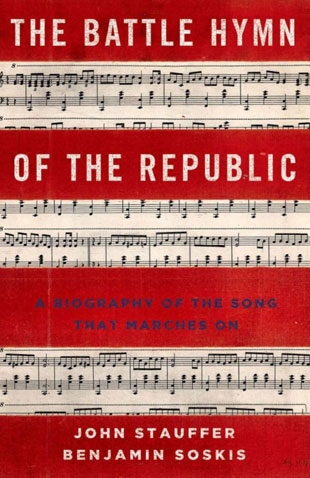"In these early campaigns against segregation, the 'Battle Hymn' was able to amplify one of the most striking characteristics of nonviolent direct action: the combination of subversiveness with an ethic of dignified self-restraint. The hymn did so with a particular resonance in Mississippi's Parchman State Prison during the summer of 1961. Parchman was the last stop for many of the Freedom Riders, the men and women from the North and South who sought to compel the Federal government to act against segregated interstate transportation by boarding buses in Washington, D.C. and heading south. Outside Anniston, Alabama, one bus, carrying seven black and six white passengers, was set ablaze. A mob attacked another bus in Birmingham, promoting the riders to call off the campaign. A group of activists from Nashville decided to pick up the journey where it had left off; they made it as far as Jackson, Mississippi, where they were arrested and eventually sent to Parchman, where several spent more than seven weeks in isolated cells.
"There was not much to do but sing. Singing help to banish boredom and to bolster solidarity, and the Riders continued to do so even after guards took away their mattresses for the infraction. (Eventually some of the guards began to hum along.) Among the songs they sang was an improvisation of the 'Battle Hymn.' 'Mine eyes have seen the coming of equality for all,' it began, and its chorus proclaimed, 'Black and white shall live together / integration is for all.' The borrowed 'Battle Hymn' tune reinforced the integrationist message of the revised lyrics, for, by the 1960s, if the song still conjured up the abolitionist associations for those continuing the emancipatory struggle, for many others it also expressed the triumph of traditional American values. The Freedom Rides, like many of the campaigns of the early civil rights movement, sought to merge those two meanings. The demand for racial integration called the nation to honor its most fundamental ideals; it insisted that excavating the abolitionist associations of the battle hymn was a project of restoration. The freedom movement, as its most prominent champion, Martin Luther King Jr., declared, was premised on the belief that 'white Americans cherish their democratic traditions over the ugly customs and privileges of generations.' "
